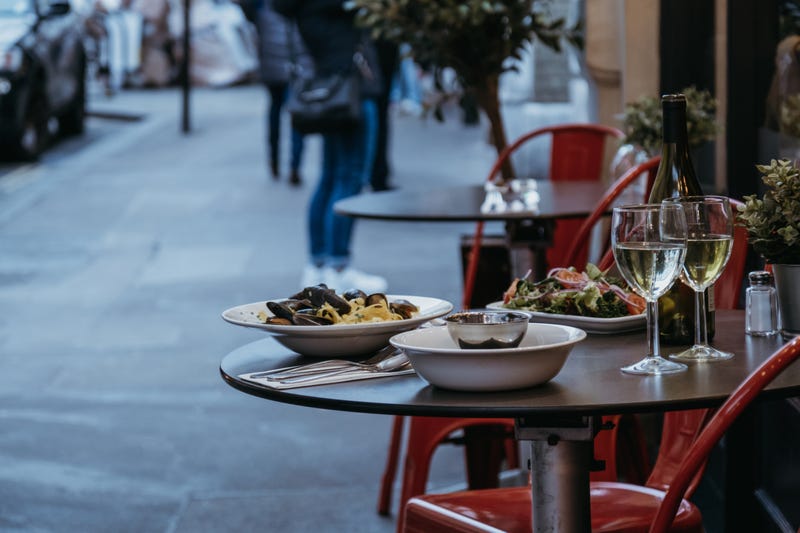
CHICAGO (WBBM NEWSRADIO) -- Mayor Lightfoot and other officials announced Friday a new initiative to increase outdoor dining areas and the opportunity for businesses and community organizations to design creative long-term outdoor spaces.
The Chicago Alfresco program builds on Mayor Lightfoot’s commitment to support businesses throughout the COVID-19 pandemic.
Last year, in an effort to increase dining spaces due to safety regulations from the COVID-19 pandemic, the city introduced special permits that allowed bars and restaurants to operate outside in private parking lots, on the sidewalk or in closed streets through the Expanded Outdoor Dining program.
Chicago Alfresco is part of the city’s broader initiative to open streets and create places for dining, public life, community, arts, culture, walking and biking.
The Chicago Alfresco program will award a limited number of grants of up to $250,000. The Chicago Department of Transportation is now seeking Chicago Alfresco proposals from community organizations such as chambers of commerce, Special Service Area providers, and other not-for-profit organizations interested in creating longer-term active community spaces that support outdoor dining or highlight community-focused placemaking, support community identity, and provide opportunities for public enjoyment. Interested neighborhood organizations can find more information at chicago.gov/alfresco.
Project Types
Proposals will be accepted for projects of a variety of types and scales. The Chicago Alfresco Design Guidelines show potential programming elements that can be incorporated in projects, including but not limited to, barriers, surface materials, furnishings, festoon lighting, and landscape materials.
• Existing Plaza Programming - CDOT has approximately 50 plazas under its jurisdiction. Respondents can propose to activate these plazas with movable furnishings for outdoor dining and public use, as well as other types of installations.
• Street / Alley Activations - Street and alley closures can provide additional dining and community gathering spaces. These will be dependent on the feasibility of the street / alley closure due to impacts on the traffic network. Preference will be given to projects that demonstrate community support for long-term or permanent closures of the proposed project location.
• Curbside Use (platform and non-platform) – The use of parking spaces along the curbside of the street provide an opportunity to expand sidewalks and provide additional public outdoor space. Platform and non-platform solutions can provide additional space for outdoor dining and public seating. Projects can incorporate seating on sidewalks, but a Sidewalk Café permit would be required for dining service. The Chicago Alfresco Design Guidelines show design requirements for each curbside activation type, including barrier and safety element requirements. While respondents can provide a customized People Spot using the guidelines provided, a standard People Spot design is available for free from the City of Chicago at chicagocompletestreets.org/streets/mwfp/peoplespots.
Proposed project durations must be a minimum of six months and preference will be given to those that commit to up to three years, officials said.
The program is funded by Diageo, a beverage alcohol producer, and is part of the city’s push for more neighborhood tourism, officials said.
Proposals must be submitted by April 15, with groundbreaking slated for June 1, officials said.
Businesses may continue to apply for Expanded Outdoor Dining permits at chicago.gov/specialeventspermits.

